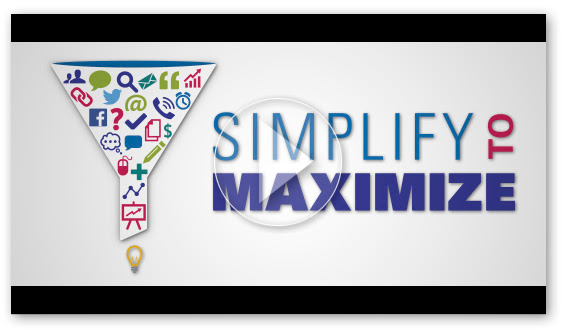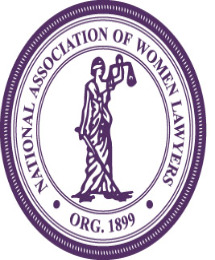
The National Law Review recently had to the opportunity to attend Thomson Reuter’s Legal Executive Institute’s 22nd Annual Marketing Partner Forum in Rancho Palos Verdes, California where Grant Fondo, Partner at Goodwin Procter, LLP participated on the panel event: Coaching for Success: Collaboration between Marketing & Professional Development to Deliver Training that Drives Revenue. This Panel focused on the intersection between business and professional development, exploring the potential impact partnership efforts can have on business growth.
On this panel, Grant spoke from his experience concerning his transition from Federal Prosecutor and former Assistant US Attorney of the Northern District of California to his work at Goodwin Procter.
Post-conference, Grant was kind enough to answer our questions concerning his career trajectory and gave us some insight from his unique experiences in the legal world. Below are his answers to the questions posed by NLR.
1. What were the considerations you took into account when choosing a law firm to join?
I was looking for a firm that was a market leader in the technology and white collar practice areas, a firm that I thought was on an upward trajectory, a firm that understood Silicon Valley, and that was collegial and believed in a collaborative work place. I have been fortunate to work in collaborative places before, and that type of environment is the best fit for me.
2. What role, if any, has your firm’s business development and marketing staff had in helping you grow a book of business?
I started from ground zero, so I needed help. I still need help, as this is a long-term process and I am still working toward my goals. The staff has had an important role from day one, both in the context of internal and external marketing. They helped me quickly integrate with many of my partners nationwide in my practice group, as well as outside of it, and helped me feel like part of the firm. Externally, they worked with me to train me to be better at marketing, focus on the marketing efforts I enjoyed, and presented me with opportunities. They also acted as a sounding board for different marketing events, provided guidance to improve my ideas, and helped me execute on those ideas.
3. What role, if any, has speaking engagements and / or thought leadership, played in helping you stay front of mind with existing or potential clients?
It has helped, but it is time consuming. You have to be thoughtful about what events you speak at, in that not all speaking opportunities and topics are created equal. When I returned to private practice, I wanted to focus on marketing I enjoyed, and pass on areas I disliked and was not good at. Thought leadership is an area that lends itself to that type of philosophy. My experience as a former federal prosecutor helps in certain areas of the law that intersect well with Silicon Valley clients. For example, there is a lot of concern here with privacy and government intrusion into and demands for company and customer data. This past year we teamed up with clients to file an amicus brief in the landmark smart-phone privacy and 4th Amendment case of Riley v. California. I enjoy spending time on areas that also hit home for clients. It also permits you to reach out to a client to let them know about the latest development, or after a meeting is over discuss a topic that is important to them but not necessarily the focus of today’s meeting. Sometimes they call back a few days later with something new or interesting.
4. How did you form and maintain relationships with potential and current clients?
My partners have been good about introducing me to clients that need my expertise, and letting me further develop those relationships. When you connect with a client, you want to foster that relationship in a way that is not intrusive or pandering. I am fortunate in that Goodwin has a really interesting client base doing pretty amazing things, so there is always something to talk about or learn from your client. Building relationships is also about focusing on what your client wants and trying to understand their perspective–if they want three quick bullet points on a topic so they are armed for their meeting with the CEO, you don’t give them a three page memo five minutes before that meeting. I also like to develop the relationship on a more personal level. I love to go fly fishing, and I have a client or two that share that passion. Simply swapping photos and stories once in a while is a lot of fun, and hopefully has the added benefit of keeping me top of mind.
5. Did you take any affirmative action to meet attorneys from other practice groups within the firm? Has this been an effective in generating referrals or helping you transition to private law practice?
I believe this is probably the most important thing a new partner can do. During my first year I took advantage of every opportunity to fly back to Goodwin’s East Coast offices to meet my partners from all practice groups, and I still try to do it. I also made similar efforts in California. Getting to know my partners and associates has helped me in a number of contexts. First, it made me feel more a part of the firm on a professional and social level. I want to enjoy going to work — I certainly spend a lot of time there, and this helps. Second, as my partners got to know me, it made me more top of mind if an issue came up. Goodwin genuinely strives to be collaborative, so by making the effort to get to know my other partners, it has paid dividends in getting phone calls about new matters or interesting cases. Third, it allowed me to respond to client inquiries when I was not the right person. Recently a client called me, and I was able to immediately direct him to my partner in another office with the needed expertise, because I had had gotten to know him during one of my trips back East.
6. Is there anything different you wish you had done earlier in your legal career to help you with practice today?
I wish I had become a federal prosecutor earlier. It was an honor doing public service; I learned so much about being a lawyer, particularly a trial lawyer, and working as a team for a common goal. I was fortunate in that I worked with a lot of really good prosecutors that were willing to share their time and knowledge. I also wished I had focused my marketing efforts, rather than haphazardly engaged in marketing activities. I look back and realize I wasted a lot of time doing things that I did not enjoy and were ineffective. I also wish I had made a better effort to keep in touch with people whom I genuinely enjoyed working with over the years.
7. What are the advantages / disadvantages of working in a prosecutor role vs. in a private practice defense attorney role?
When I was a federal prosecutor, people immediately returned my calls. There is no shortage of criminals, so I always knew I would have a new case next month. Another benefit is you have the luxury of spending as much time as you want on a case, without worrying about bills. In private practice, you are always thinking about your next case, and constantly balancing quality legal work with efficiency. Also, when you represent a company or individual, government inquiries and prosecutions are immensely personal and unsettling, so there is more of a human element that factors into your representation. I do think it helps to have been a prosecutor, because you can provide your client insight into how the process works, and the likely viewpoint of the prosecutor or regulator. One disadvantage is the level of interest in what I do. When I was a prosecutor, my friends and colleagues always asked what type of case I was working on, and what the criminals were up to—Ponzi schemes and drug cases are inherently interesting to most people. Similarly, my kids thought I was pretty cool because I worked with federal agents with guns, met the President, and put bad guys away. Now, my friends and kids rarely ask me what type of case I am working on.
OF
Like this:
Like Loading...









